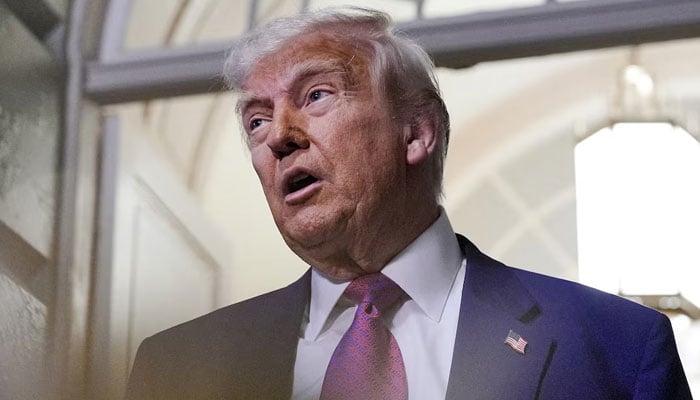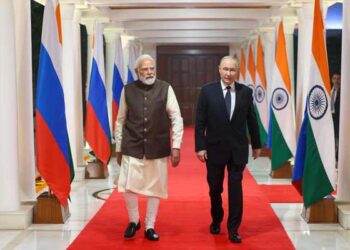Select Language:
Washington: President Donald Trump is nearing plans to formally ask the Supreme Court to approve his widespread emergency tariffs, following two setbacks in lower courts. Despite these defeats, his administration is preparing backup strategies and expects a challenging legal battle ahead.
Legal experts note that the Court’s 6-3 conservative majority could slightly boost Trump’s chances of preserving his “reciprocal” and fentanyl-related tariffs. This comes after a recent federal appeals court ruled 7-4 that these tariffs are unlawful.
Trump announced on Tuesday that his team would seek an expedited Supreme Court review as soon as Wednesday, emphasizing the urgency of a quick decision. He warned of severe economic consequences if the duties, which were imposed under the International Emergency Economic Powers Act (IEEPA), are invalidated.
The Federal Circuit Court of Appeals agreed on Friday with a lower court that IEEPA does not grant the president unlimited authority to impose tariffs. The 1977 statute does not explicitly empower the president to do so in a national emergency.
This ruling marks a rare setback for Trump, who has used tariffs as a tool to reshape the U.S. economy by declaring trade tensions a national emergency over persistent trade deficits.
Officials like Treasury Secretary Scott Bessent believe the Supreme Court will uphold the use of IEEPA to justify tariffs but are prepared to explore other legal avenues if necessary. The tariffs will stay in effect until at least October 14 to give the government time to appeal to the Supreme Court.
The Justice Department has argued that emergency provisions allow tariffs that enable the president to regulate or completely block imports.
The scope of this unwritten regulatory power is the central issue in Trump’s appeal. Two previous losses have led some legal scholars to think that the original ruling against the tariffs might ultimately be upheld.
John Veroneau, a former deputy U.S. Trade Representative appointed by Republicans and a partner at Covington & Burling, expressed skepticism about an overly broad reading of IEEPA. He believes the Supreme Court is unlikely to endorse the idea that the president can rewrite tariff laws at will on any day and for any reason.
The case will also serve as a test of the “major questions doctrine,” which states that Congress must clearly grant authority for decisions of significant economic or political impact. This doctrine was previously used in 2023 when the Court struck down President Biden’s attempt to forgive student loans, citing lack of explicit Congressional authorization.
The Court’s decision will weigh the economic impact of the tariffs versus its usual deference to presidential authority in foreign policy and emergency matters. Notably, most of the appeals court judges who opposed the tariffs were appointed by Democratic presidents, but there was some bipartisan crossover.
Ryan Majerus, a former senior official at the Commerce Department, highlighted that the Supreme Court will likely clarify if IEEPA grants the broad powers claimed by the administration. Whatever the outcome, it will shape the future direction of U.S. trade policies.
In anticipation of potential setbacks, the Trump team is also exploring other legal routes, including invoking provisions from the dormant 1930 Smoot-Hawley Tariff Act, which allows tariffs up to 50% on countries that discriminate against U.S. commerce. This option could enable a swift imposition of tariffs should the IEEPA-based authority be invalidated.
If the tariffs are ultimately invalidated, a major challenge will involve refunding duties already collected—which amount to over $65 billion as reported by Customs and Border Protection. Importers could protest and seek refunds, but these disputes might lead to lengthy legal battles.
A source familiar with the administration’s legal strategy indicated that lawyers spent the Labor Day weekend analyzing the ruling and expect to File an appeal to the Supreme Court soon, with a final decision possibly arriving in early 2026.







